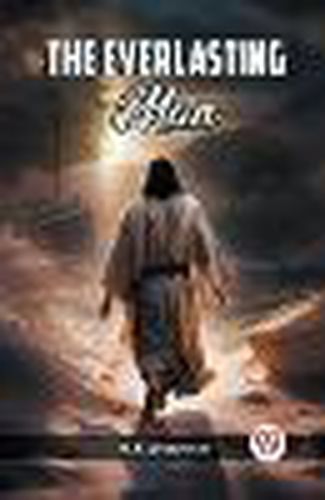Readings Newsletter
Become a Readings Member to make your shopping experience even easier.
Sign in or sign up for free!
You’re not far away from qualifying for FREE standard shipping within Australia
You’ve qualified for FREE standard shipping within Australia
The cart is loading…






G. K. Chesterton wrote "The Everlasting Man" as a Christian apologetics work. It is a rebuttal to H. G. Wells' "The Outline of History," which questions Wells' representations of human life, civilization, and Jesus Christ. Chesterton's work depicts humanity's spiritual path, with a concentration on Western civilization. The work is divided into two halves, "On the Creature Called Man" and "On the Man Called Christ." In the first section, Chesterton contends that humans are fundamentally different from other creatures. In the second half, he argues that Jesus and Christianity go beyond mere human leadership and religion, emphasizing their miraculous and unusual nature. C. S. Lewis commended "The Everlasting Man" with influencing his intellectual conversion to Christianity, calling it the best popular argument he knew. The book had a tremendous impact on Christian theology and apologetics, offering a persuasive case for Christianity's long-term significance and uniqueness in the face of modern skepticism.
$9.00 standard shipping within Australia
FREE standard shipping within Australia for orders over $100.00
Express & International shipping calculated at checkout
G. K. Chesterton wrote "The Everlasting Man" as a Christian apologetics work. It is a rebuttal to H. G. Wells' "The Outline of History," which questions Wells' representations of human life, civilization, and Jesus Christ. Chesterton's work depicts humanity's spiritual path, with a concentration on Western civilization. The work is divided into two halves, "On the Creature Called Man" and "On the Man Called Christ." In the first section, Chesterton contends that humans are fundamentally different from other creatures. In the second half, he argues that Jesus and Christianity go beyond mere human leadership and religion, emphasizing their miraculous and unusual nature. C. S. Lewis commended "The Everlasting Man" with influencing his intellectual conversion to Christianity, calling it the best popular argument he knew. The book had a tremendous impact on Christian theology and apologetics, offering a persuasive case for Christianity's long-term significance and uniqueness in the face of modern skepticism.